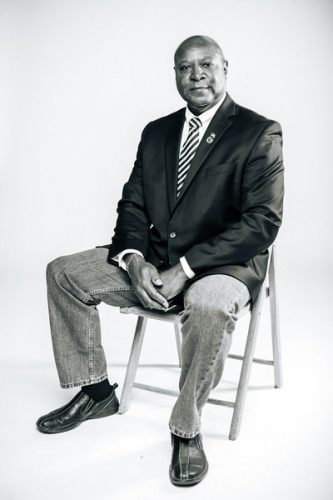
I know firsthand that running for political office costs money. As a candidate for House District 14 in West Eugene and Junction City, I made a lot of fundraising calls. I didn’t (and still don’t) mind raising money and I think I’m not too bad at it. Every candidate needs resources to explain to voters about why they’re running to serve and what ideas they have for fixing the biggest problems facing your community.
But the need for increasing amounts of money to run seems like winning is more about who you know than what you hope to do for Oregon. Raising so much cash becomes a barrier for those without wealth or access to wealthy donors — particularly people of color and women — from running and winning office.
We all lose when it’s harder for everyday Oregonians to get elected. We lose a diverse range of voices. We lose good ideas that never get heard, or are drowned out by the issues important to the wealthy and powerful. And we lose faith in our very democracy.
I hear from so many Oregonians who feel their voices don’t matter in Salem. But they know what matters to them and their family: affordable healthcare and housing, a fairer criminal justice system and more equitable education and job training opportunities. These are issues that too often get short shrift in our policymaking.
If we want all Oregonians to have an equal chance to run for office and an equal voice in our democracy, we must give candidates a different pathway to run for office, one that doesn’t rely on wealthy donors to fund their campaigns.
Fortunately, the Oregon Legislature has the opportunity to pass a bill that does just that.
The Small Donor Elections bill introduced by my colleague Rep. Dan Rayfield would be a big step towards removing the financial barriers to running for office and participating in state politics. House Bill 2578 offers more Oregonians an avenue to engage in politics and allows candidates to spend less time raising money from big donors and more time talking with neighbors and voters about their biggest concerns.
Passing this bill would give candidates for legislative and judicial offices a choice: raise money the usual way, or cap your contributions at no more than $250. If you choose the cap under the Small Donor Elections program, and show you have a wide base of grassroots support, then those small donations are matched six to one with limited public funds. It treats everyone like a big donor, so even small donations have a big impact. This way, candidates focused on small donations can run a competitive campaign.
Just imagine, instead of spending so much time talking to affluent donors, candidates can spend more time talking to ordinary constituents. And when you don’t need a handful of wealthy donors on speed dial to run for office, it reduces the barriers for people of all backgrounds to run for office.
Small Donor Elections is supported by a diverse coalition of groups who are on the front lines of advancing the interests of Oregon residents including working families, women, people of color, small businesses, and LGBTQ individuals. They understand what I know to be true: when you empower small donors, you create a democracy that works for everyone, not just those who are used to holding the purse strings.
Small Donor Elections will keep Oregon as a leader in creating a strong democracy, and there is no better time to stand up and demonstrate we support this ideal. I urge my colleagues to pass this legislation swiftly.
James I. Manning Jr. is the Oregon state senator for district 7, Eugene and Junction City.